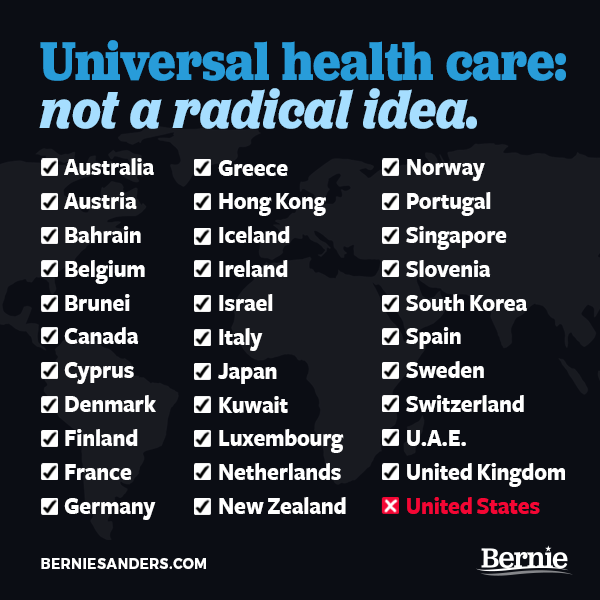During the debate tonight, Bernie Sanders said (from the Washington Post's transcript):
We need...a health-care system that guarantees health care to all people as every other major country does, not a system which provides $100 billion a year in profit for the drug companies and the insurance companies.
What definition of "major countries" is being used?
Has Sanders personally elaborated on what he means by "major country?"
